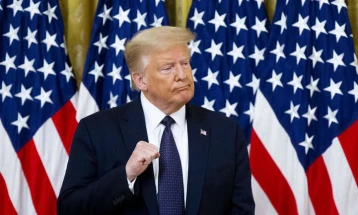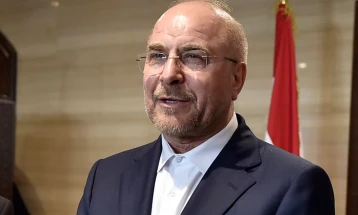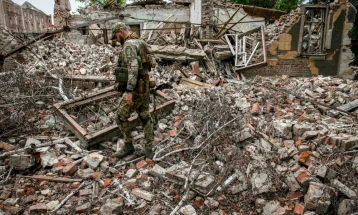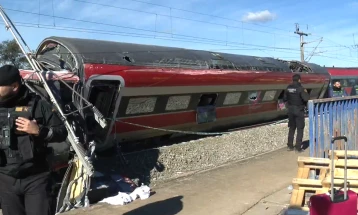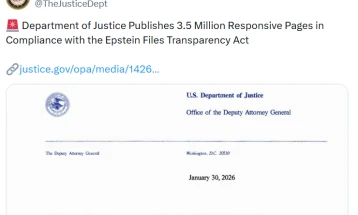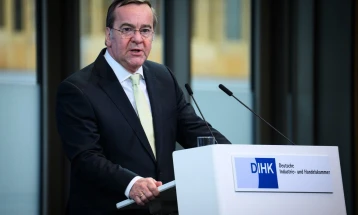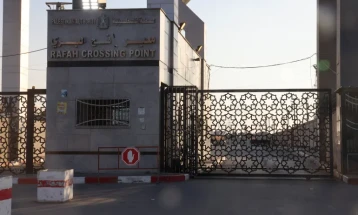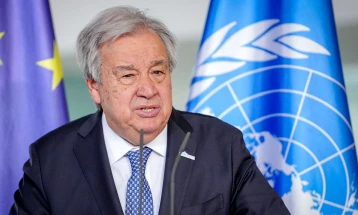EU leaders want more progress on gas price cap amid German hesitancy
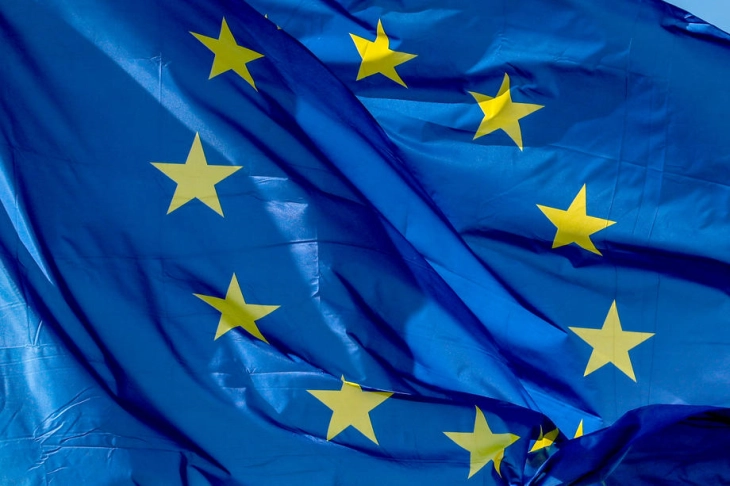
Prague, 7 October 2022 (dpa/MIA) - Several European Union leaders called for concrete proposals for a gas price cap after an informal meeting in Prague on Friday, with others, including from Germany, still hesitant.
"More and more voices around the table [are] in favour of imposing a gas price cap as quickly as possible," said Polish Prime Minister Mateusz Morawiecki after the meeting.
"Now, finally, better late than never, I hope it will be put in place," he added.
"Things are moving," Italy's caretaker prime minister Mario Draghi said as he departed.
Draghi said the European Commission is due to present a proposal on how to lower prices and to start a reform of the electricity market at the next leaders' summit in three weeks' time.
European Commission President Ursula von der Leyen recently opened up to the idea of temporarily capping the cost of gas, without providing details of how this could be implemented.
Different ideas for gas price measures needed to be examined "to check whether they make sense in practice," German Chancellor Olaf Scholz said after the Prague meeting.
Ideas for gas price measures include capping the price of Russian gas imports, reducing the price of other gas imports, limiting the price of gas used for electricity generation, and capping the price of gas transactions within the bloc.
"Prices must come down and energy security must be guaranteed," said Scholz.
Dutch Prime Minister Mark Rutte said the risks of interfering with the gas price needed to be assessed carefully to make sure gas shipments would not be rerouted to other regions if the EU was to decide to pay less for gas imports.
Calls for an EU-wide solution have intensified in recent days, after Germany announced plans for an energy aid package worth up to €200 billion ($196 billion).
The plan has drawn criticism for potentially giving Germany and its industry an advantage, as other countries cannot afford similar national measures.
Polish Prime Minister Mateusz Morawiecki accused Germany of "egoism" and called for unity and solidarity.
Scholz defended the aid package saying it was "necessary" to relieve citizens from high gas prices.
EU leaders also discussed alleged recent sabotage of gas pipelines in the Baltic sea and agreed to work towards closer cooperation in protecting important infrastructure in the bloc.
"What happened with Nord Stream 1 and Nord Stream 2 is clearly the type of threats we will have to get used to, but more importantly, be prepared for," EU Commission President von der Leyen said later in a press conference.
Besides energy issues, EU leaders also discussed the situation in Ukraine and their support for the war-torn country.
"I think it is very important that we give a clear answer to the threat of nuclear weapons that we have heard. And this answer must be that everyone should leave that be," Scholz said, addressing recent threats made by Russian President Vladimir Putin.
"The use of nuclear weapons is unacceptable," the German leader added.
Ahead of the meeting, EU foreign policy chief Josep Borrell had announced plans for another round of military aid to Ukraine which are expected to be discussed by EU foreign affairs ministers later this month.
Ukrainian President Volodymyr Zelensky, addressing EU leaders via video-link, also called for additional arms deliveries.
"Increase the supply of weapons and ammunition to defend against the Russian pressure," Zelensky said.
The Ukrainian leader also asked for air defence systems to protect energy infrastructure from Russian airstrikes in his address.
